
Jim McGuinness celebrates the 2014 All-Ireland semi-final win over Dublin with Michael Murphy and Anthony Thompson
The Tuesday night after Donegal scraped through the 2014 All-Ireland quarter-final, Jim McGuinness crammed his players into a makeshift portacabin at Donegal’s yet-to-be-built Centre of Excellence, as it was known as then, in Convoy.
“I know how to beat Dublin,” he began, speaking of their daunting semi-final against the back-to-back All-Ireland chasers, who were already been dubbed in certain quarters as the 'unstoppable juggernaut' or, more simply, 'the unbeatables'.
"I’ve been tracking them," McGuinness added. "It’s all bullshit ... All this talk of them being the team nobody can beat … It’s all bullshit.”
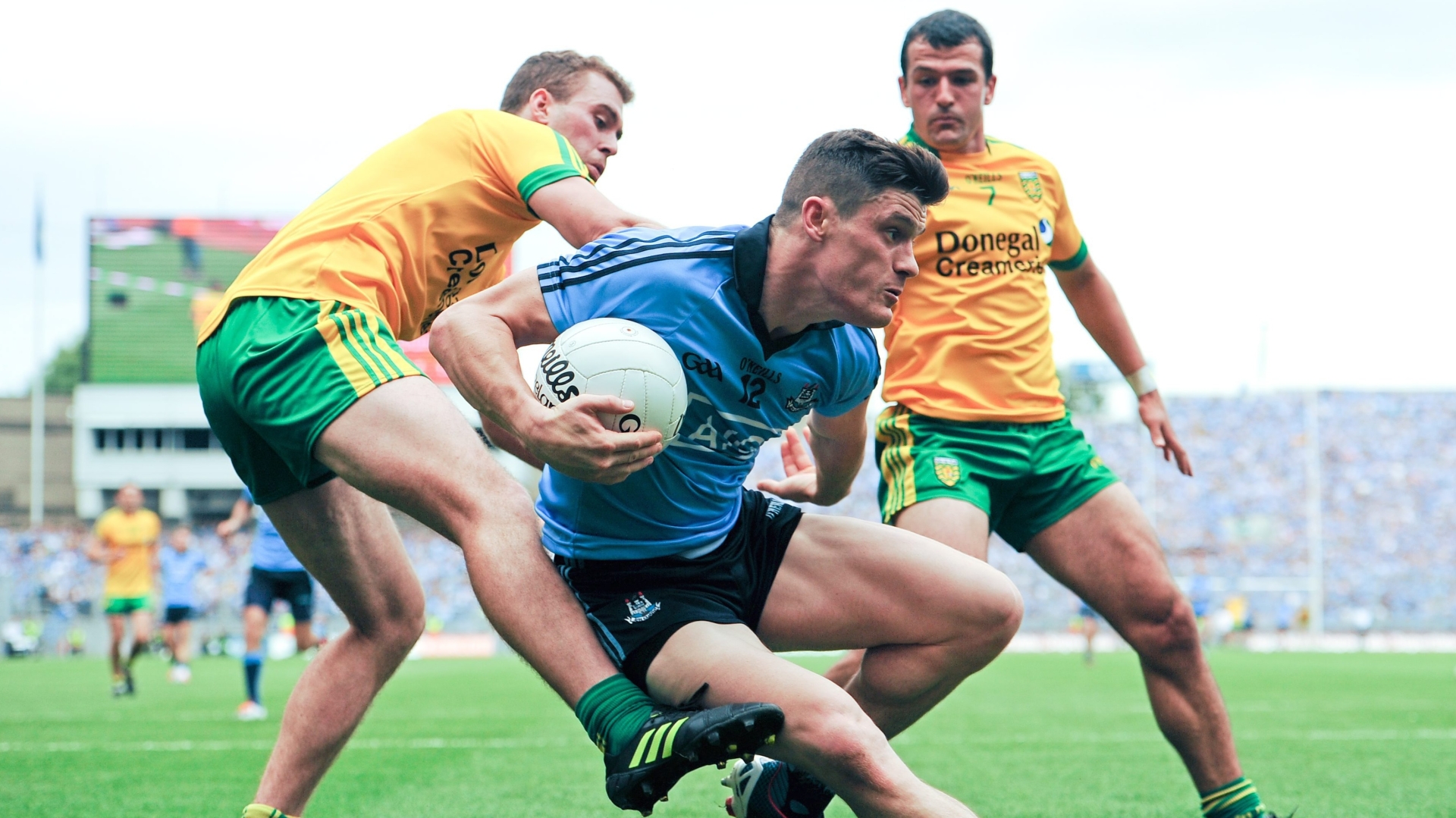
Patrick McBrearty had settled a nervy last eight affair with Armagh, kicking the winner in an unconvincing 1-12 to 1-11 victory. Armagh's Aaron Findon was the sole recipient of a yellow card after he pushed over Donegal team doctor Kevin Moran, an incident which kept the picture editors busy ahead of the Sunday papers, not to mention the 'Flying Doctor' caption-makers. A couple of hours after that win, Dublin walloped Monaghan 2-22 to 0-11.
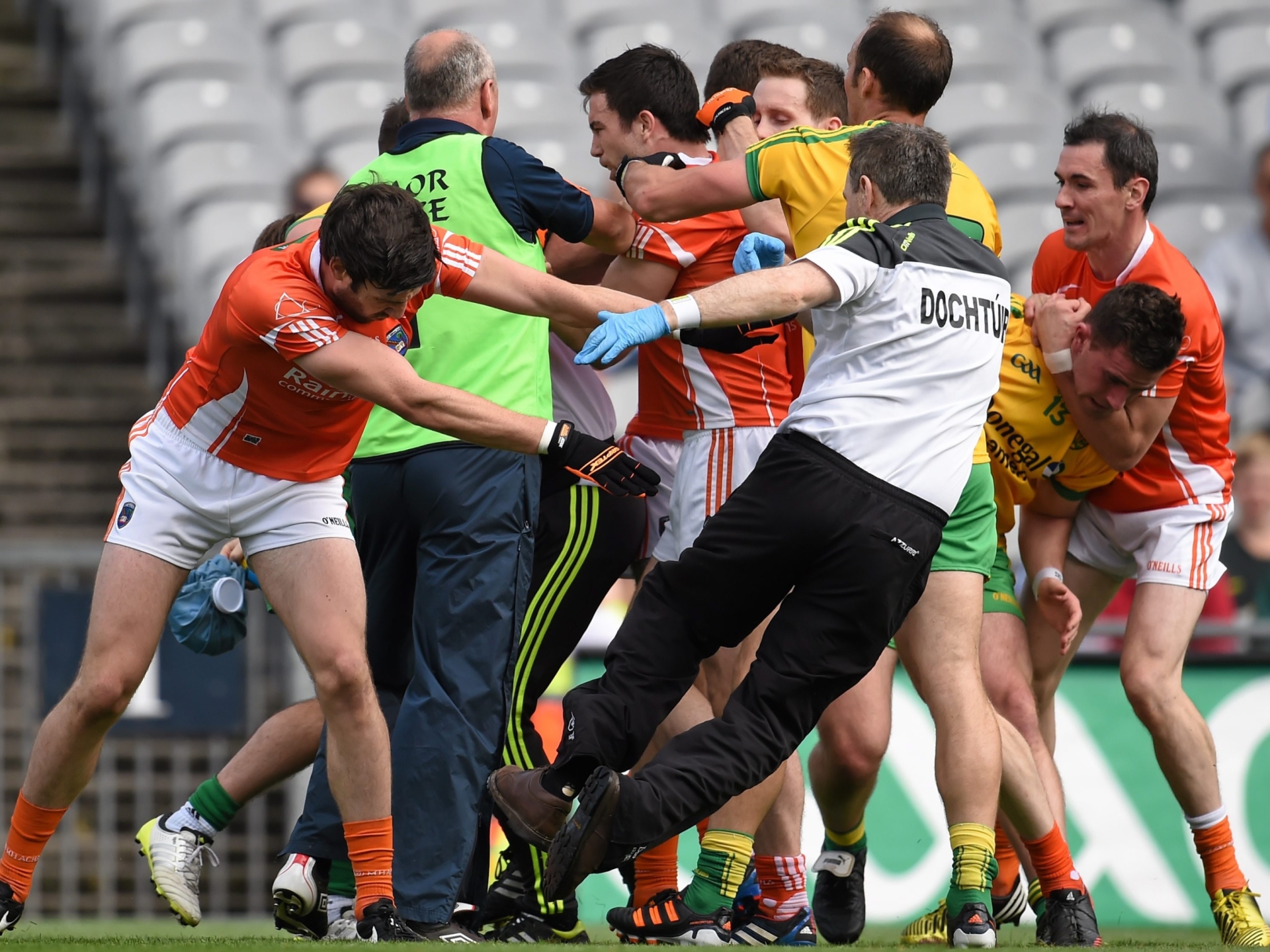
McGuinness skipped the Armagh post-match interviews as, with the lights out and unresponsive switches being flicked, selector Damien Diver sat in the secondary media room under the Cusack Stand in darkness, lit up only by the scattered glare of journalists’ mobile phones being used as audio recorders. The Donegal manager had left Croke Park early for the Skylon Hotel whilst Dublin were still in their groove. Plenty thought it would soon be lights out for Donegal; considered secondary at best.
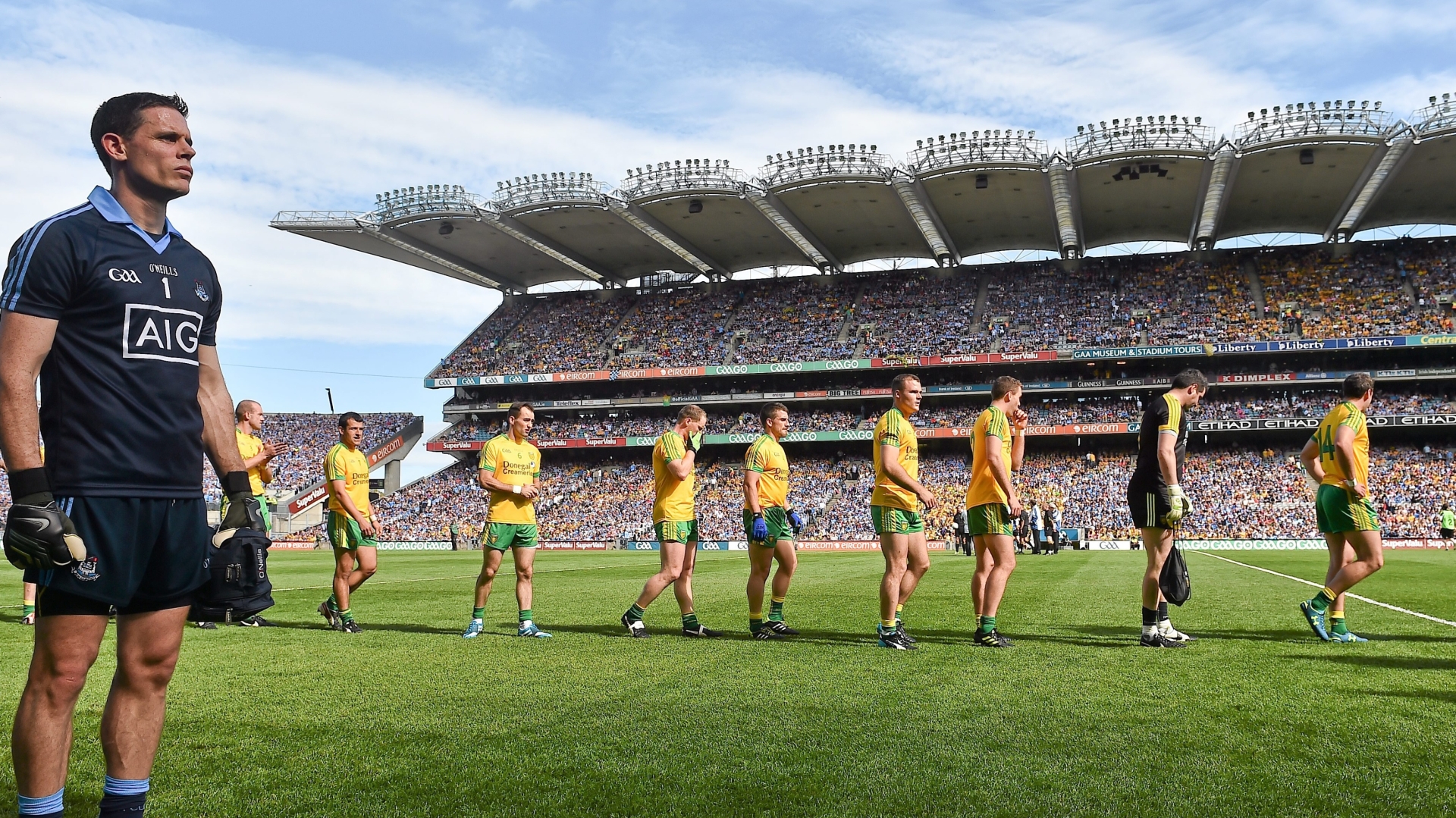
In a space in Convoy where a cat couldn’t be swung long before social distancing became a thing, McGuinness began the breakdown. “They are going to high press,” he said of Jim Gavin’s team. “Once we are beyond that surge, we are into open country. Other teams find themselves in that space, in the middle of Croke Park and with the noise, the pressure, they think they have to kick the ball … right down the throat of Rory O’Carroll and Johnny Cooper. They’re getting nosebleeds.”
“The way Jim spoke, he could always fill you with confidence,” said Colm McFadden in 2019, Donegal’s corner-forward and McGuinness’s brother-in-law. “But the more and more he broke down Dublin, the more it made sense.”
Donegal tirelessly worked on a particular drill that saw a runner, say Ryan McHugh, break from midfield, with his inside options Michael Murphy and McFadden being man-marked, out in front, by one defender each. The ‘runner’ was encouraged to keep possession unless a kick-pass was definitely on. Support runners would provide supplementary options; safety in numbers if you like.
The morning of the semi-final, at Johnstown House in Enfield, McGuinness flipped his chart. “Two or three goals,” and “16 or 17 points. That’s what it will take.”
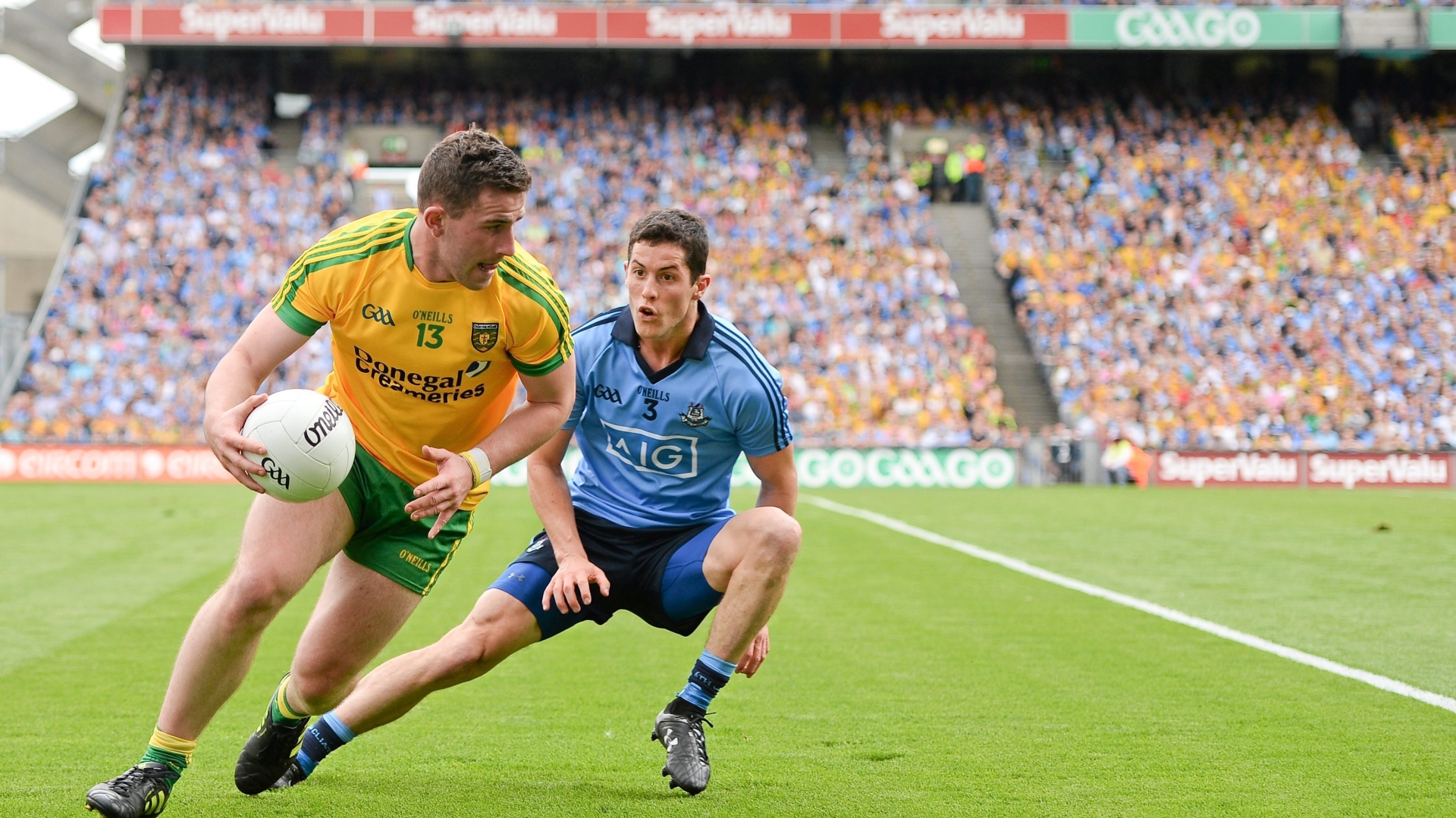
When Donegal lost the 2011 All-Ireland semi-final to Dublin, 0-8 to 0-6, McGuinness admitted the contest came too early in their existence: “Our development wasn’t far enough down the track to be able to compete at that level with Dublin then.”
That morning in Ashbourne, he confiscated the players’ phones in a bid to keep his unorthodox tactical plan - basically all out defence bar a lonesome McFadden up top - completely in-house.
People forget that at that time, 2011, Dublin had hammered over 22 points - 17 from play - to beat Tyrone in the quarter-final. Barring the win over Kildare the previous month, Donegal’s last experience of Croke Park in Championship football was the 2009 obliteration by Cork, who scored 1-27. It’s still a record scoreline for a football match at HQ.
The whole stadium, that August Bank Holiday Sunday in 2009, at one stage, could hear goalkeeper Michael Boyle shouting “for f*cks sake lads” as he prepared to take one of his 40 kick-outs, surely another record, with his teammates hiding behind red Corks jerseys in various states of dishevelment.
The Sunday Game editors, who had a job on their hands trimming down that match for the nighttime show, somewhat mischievously decided not to omit or even edit Boyle’s call. Some of the Donegal players stayed in Dublin to drown their sorrows till the Wednesday.
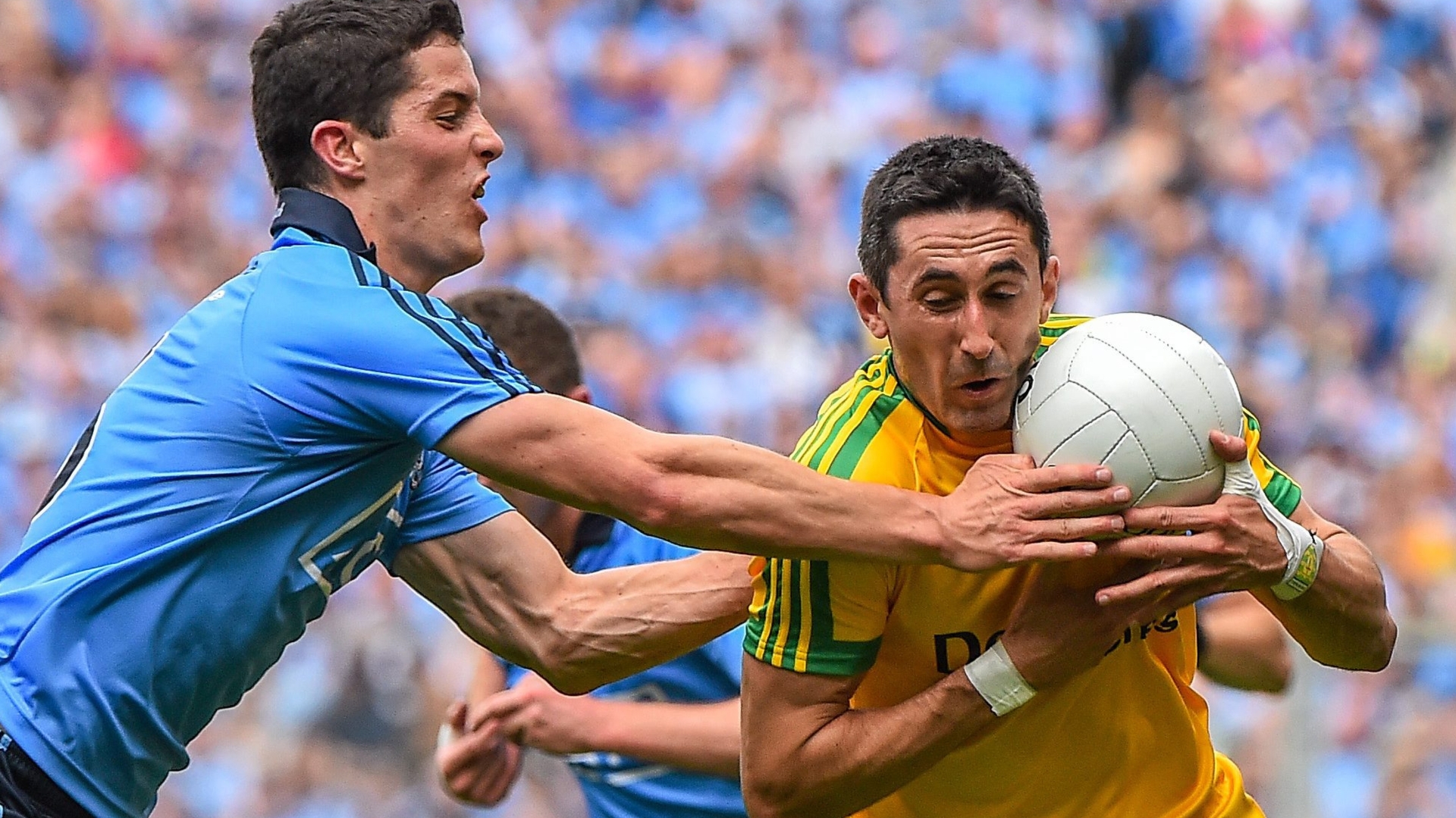
“In 2011 it was about keeping the numbers down,” midfielder Rory Kavanagh said of Dublin in his autobiography Winning. “In 2014, though, the emphasis had shifted. We weren’t being told how to stop Dublin – we would see if they could stop us.”
The plan, initially, was to stay in the game. McGuinness drew an imaginary U in front of Hill 16 and insisted Donegal defend it with their lives. “Dublin do not score inside of this,” he stressed. “Even if they flash over a few from long range, it is not sustainable.”
Dublin did. And with Paul Flynn and Diarmuid Connolly particularly majestic, led 0-9 to 0-4 after only 25 minutes. The signs were ominous for Donegal, although Paul Durcan saved from Connolly, keeping the sheet clean. Christy Toye’s introduction brought Donegal a competent ball-carrier.
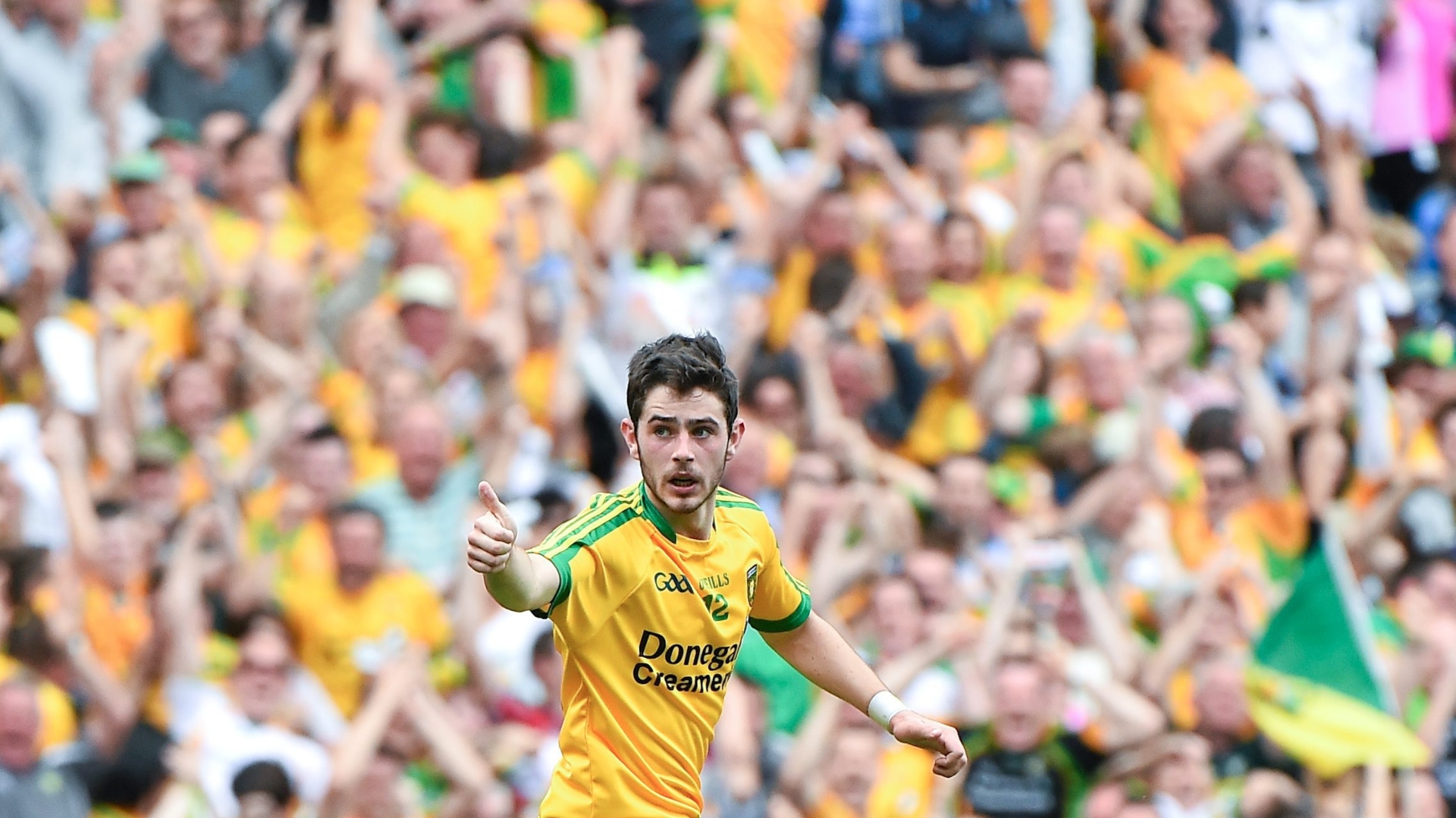
Donegal were deliberate in possession and, chipping away, were hanging in at 0-9 to 0-7 down before the sea-change on 33 minutes. From the shadow of the Hogan Stand, Kavanagh boomed a ball into the square towards Murphy that would turn O’Carroll, and from the break McFadden fed McHugh to shoot under Stephen Cluxton.
Donegal were 1-8 to 0-10 in front at half-time and tellingly Flynn and Connolly's cues were becoming less chalked. Long-rangers were proving unsustainable.
"The big screen happened to show Jim Gavin and Declan Darcy sitting in the stand together and laughing about something. It was probably unfortunate timing, but we noticed it on the sideline,” McGuinness later wrote in Until Victory Always: A Memoir.
“I told the players that I wanted to see Jim Gavin out of that f*cking seat in the Hogan Stand and down on the sideline giving his substitutes a rub on the back when he was sending them in.”
_Cropped-1647509131415.jpg)
With a Dublin onslaught expected, Donegal’s response was to implement their choreographed strategy. Their diligent defensive priorities coupled with breaks from all corners. Dublin couldn’t live with the numeric stream towards Hill 16. Open country.
Gavin soon left his seat, patting, just shy of a rub, Kevin McManamon - the man who turned the semi-final Dublin's way three years earlier - on the back with some last ditch instructions before sending him in.
McHugh slapped home a second goal when found by Anthony Thompson after Murphy waddled O’Carroll from the square with a dummy-run.
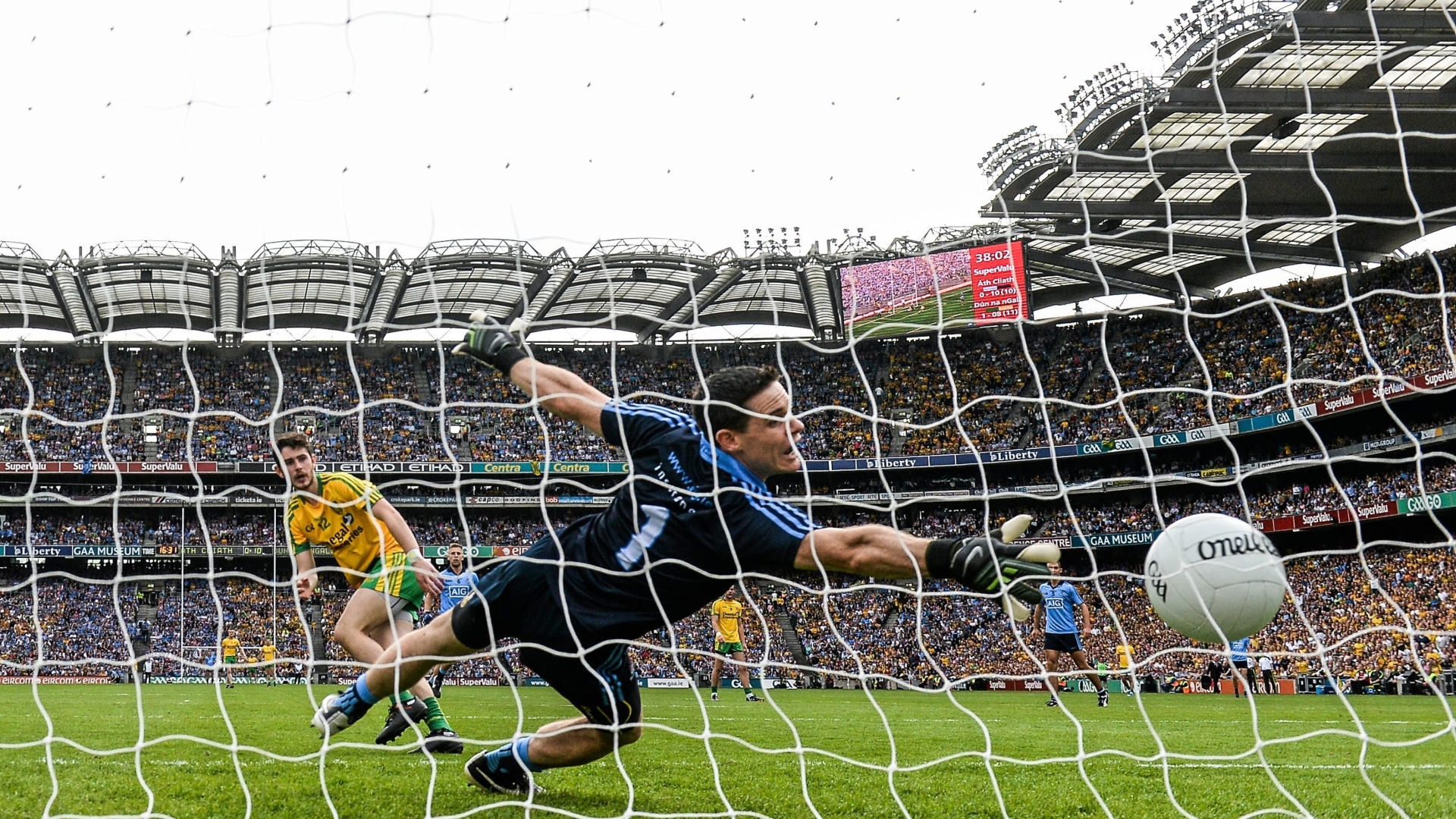
Then, a simple overhead slap - a tactic frequently used - from Murphy after a raking kick-out from Durcan unhinged the entire Dublin defence and by the time Odhran MacNiallais had laid over to McFadden, who side-stepped Cluxton to score a third goal, Donegal had five players in the Dublin square.
It wasn’t until the 66th minute, when Connolly blazed wide by the Davin Stand that Dublin managed to get a second half shot off from inside of Donegal’s 20-metre line – the other over the course of the 70-odd minutes being the same player's first half goal chance. From an opening where they were nailing shots from 50 metres, Dublin were missing now missing them from 15.
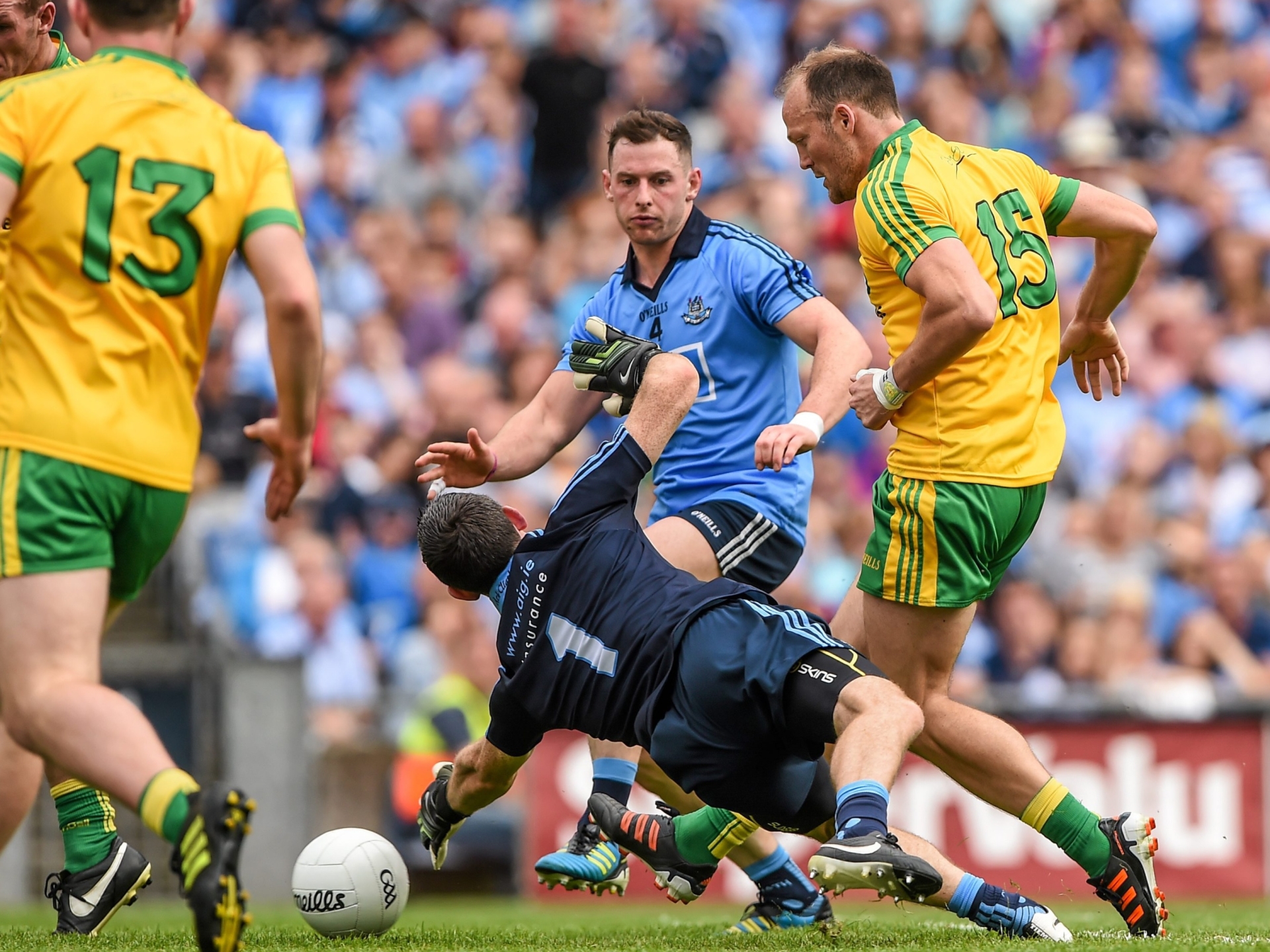
Donegal melted Dublin, winning 3-14 to 0-17. The flipchart wasn’t far off. With the minors having beaten Dublin earlier that day, also setting up an All-Ireland final against Kerry, it remains Donegal's utopian moment. “I believe that every game is winnable if you get everything right and you’ve got the right attitude,” McGuinness said afterwards.
It was was a little like the ‘Rumble in the Jungle’ when, in 1974 in Kinshasa, Zaire, Muhammad Ali opted to take punches from George Foreman, as means of wearing the then world heavyweight champion out.
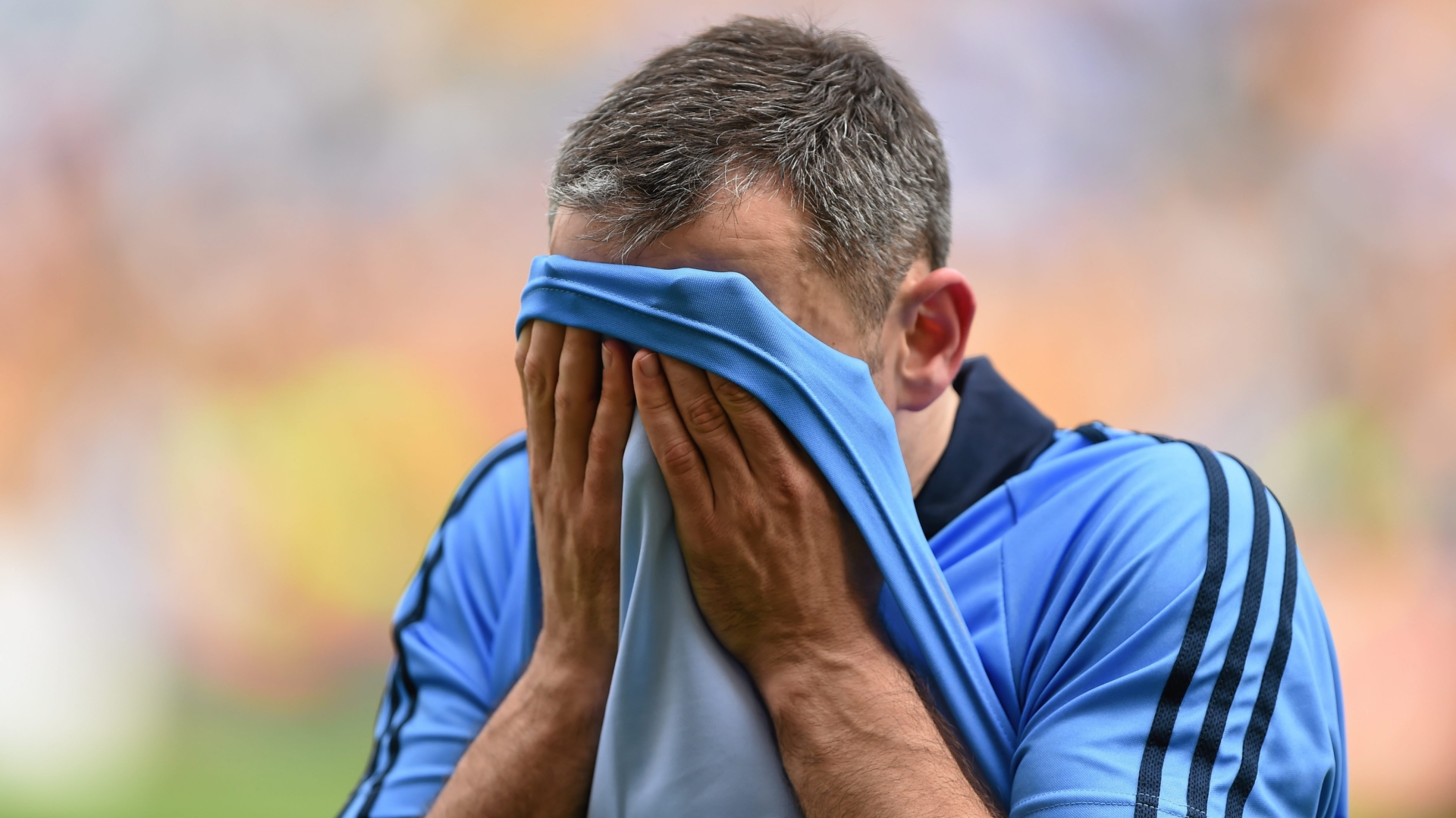
Ali then picked his moment to go on the offensive and win with a eighth round knockout. It is heralded as the ‘rope-a-dope’ technique. Foreman’s attack wore down his own defence. When it wasn’t enough to crack the opponent, he cracked himself. Ali fooled the world.
"It was a bit like Ali in the Foreman fight," Eamon McGee said in the post match interviews. "Absorb everything and try and hang in there. It was a big psychological blow for the Dubs to throw everything at us and find themselves a point down. It was no big shock, like.”
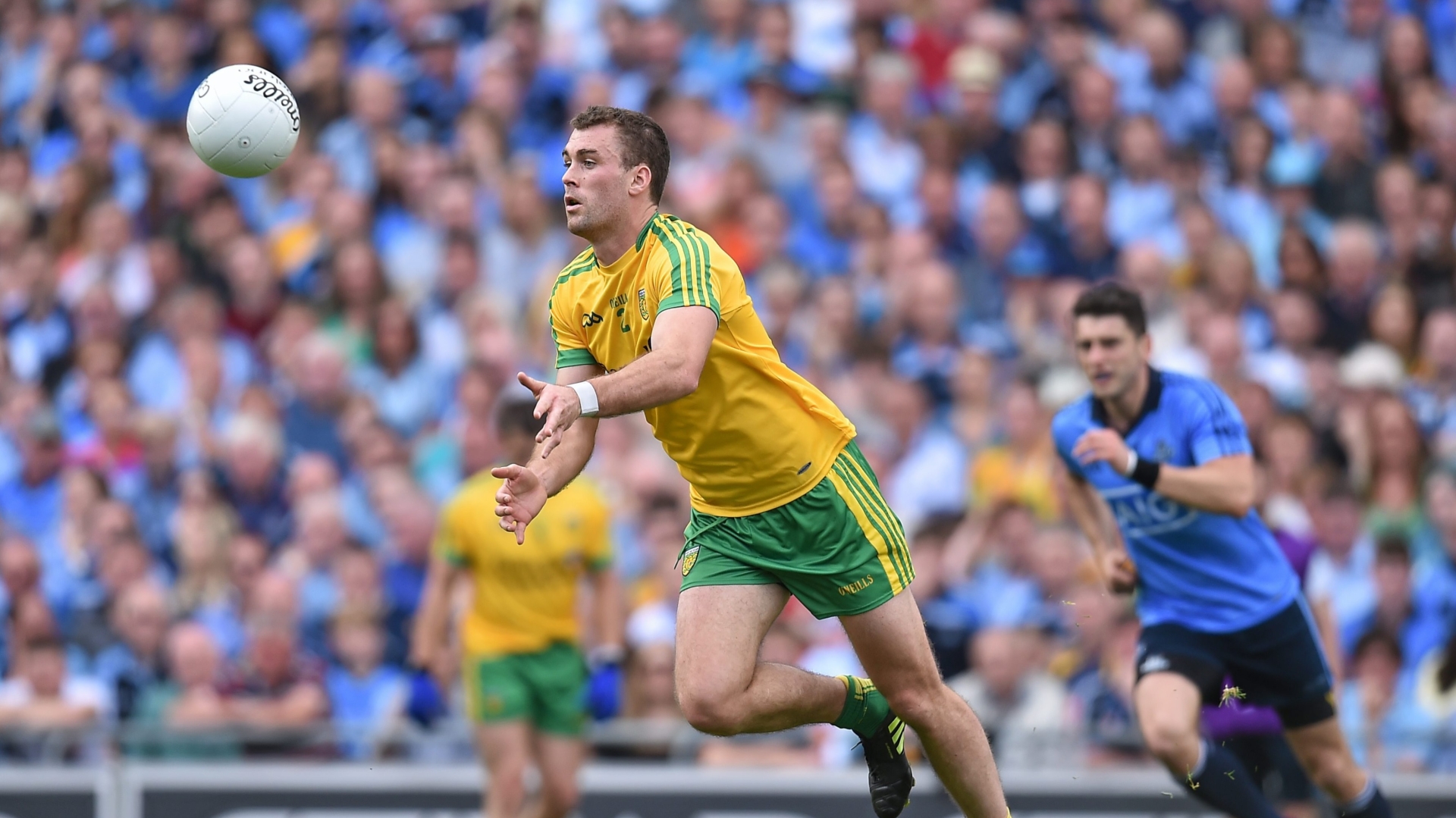
When McGuinness wrote in his memoir back in 2015 that some of Donegal’s players had taken a flutter on themselves, it arched a few eyebrows. But it showed where the level of confidence that existed in the county at the time. Nobody felt forgotten in Donegal.
“Our boys had us backed to beat Dublin,” he had said. “We were available at 10/1. They had a few hundred euros on themselves. And we knew leaving the hotel that we were going to win.”
It was to prove McGuinness’s last win as manager. Donegal, for all their plaudits, had shown their hand and lost to Kerry, who also studied the Armagh gameplan, in a drab game-of-stares final. Within a fortnight, McGuinness left Glenties for Glasgow.
Donegal haven’t featured in an All-Ireland semi-final or beaten Dublin at Croke Park since.
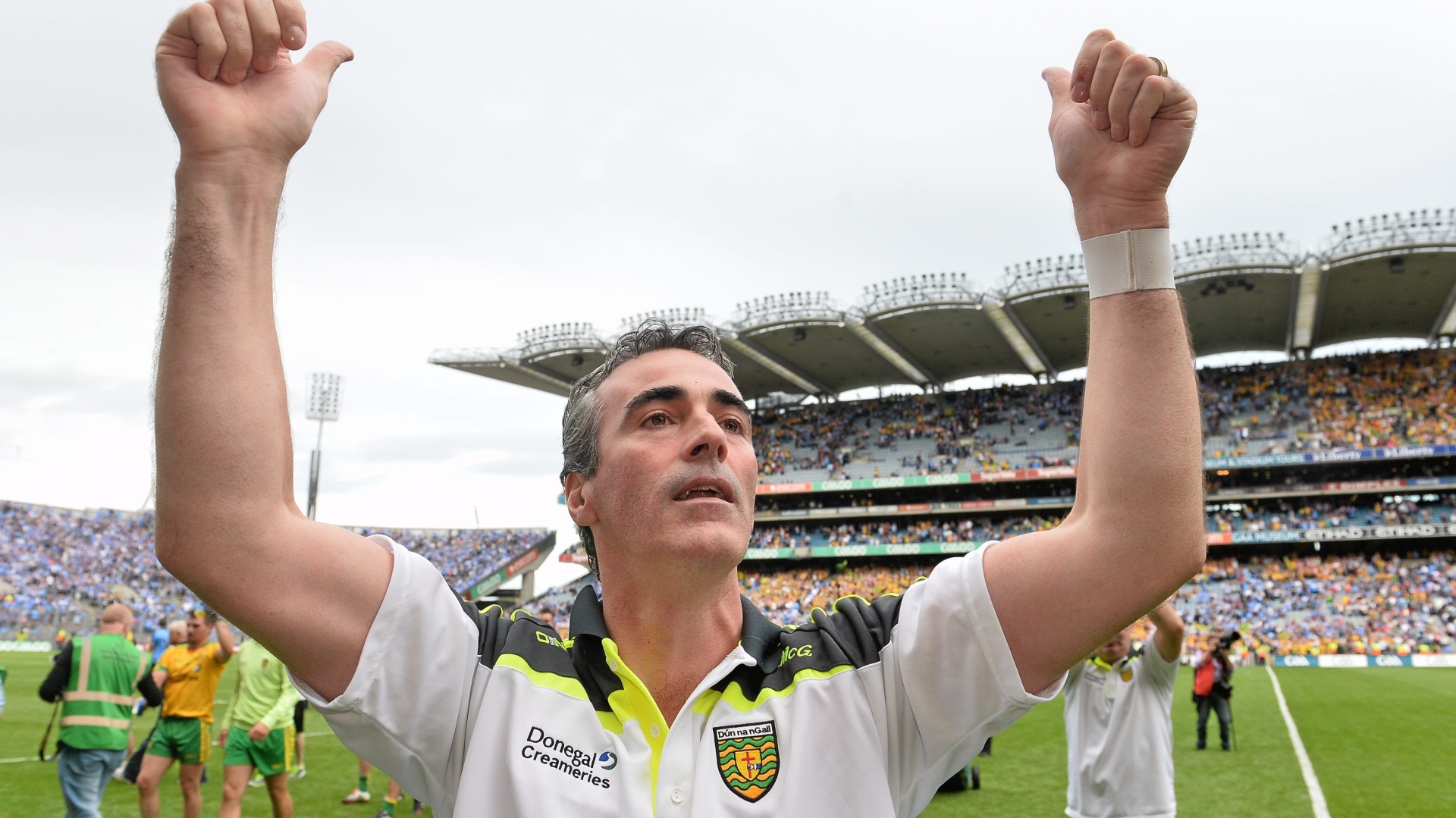
“In football you have to be willing to learn from your mistakes and Dublin certainly did,” McFadden added. “They never were exposed like that again. You have to hand it to them.”
“Dublin were a very good team in 2014,” Kavanagh wrote. “But that game made Jim Gavin conduct a root and branch analysis of what went wrong and from then on they began to further forensically dissect their game plan. They soon became a great team.”
It was to prove Gavin’s only championship defeat in seven seasons. Dublin, distilling their undoubted style with a sprinkling of more substance, would go on to win the next six All-Irelands and nobody, even Ali or McGuinness, ever fooled the world like that again.
Subscribe or register today to discover more from DonegalLive.ie
Buy the e-paper of the Donegal Democrat, Donegal People's Press, Donegal Post and Inish Times here for instant access to Donegal's premier news titles.
Keep up with the latest news from Donegal with our daily newsletter featuring the most important stories of the day delivered to your inbox every evening at 5pm.